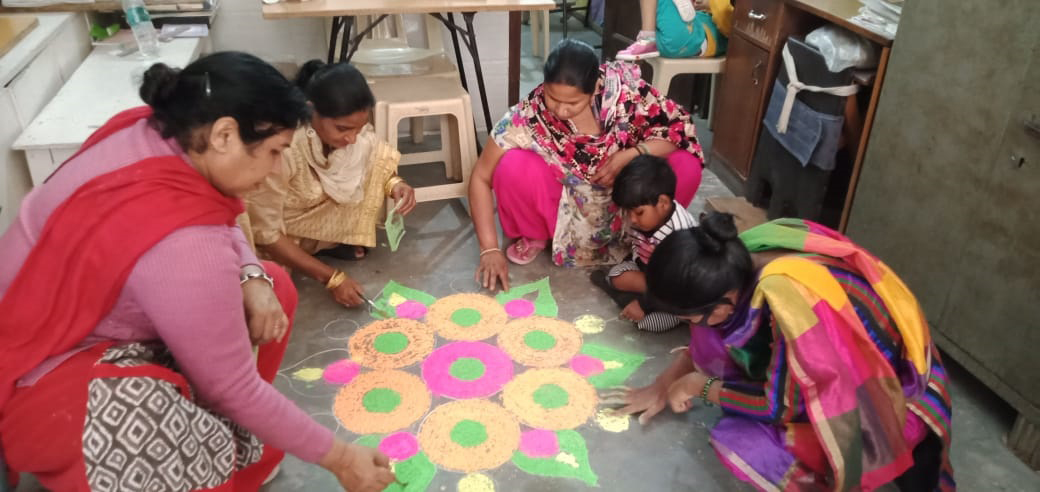
- home
- Activities
- Community-Based Initiatives
- parents groups
parents groups

- Parents’ group meetings are organized with the prime focus of empowering parents to be active partners in rehabilitation within the community.
- The underlying principle has been to bring together the parents and provide them enough knowledge and skills required to undertake initiatives not only for their own children but also for improved care provision for all the children in the community.
- To start with, monthly meetings were organized in the communities in which we had our research/training/rehabilitation initiatives. The meetings facilitated the coming together of families of children with a particular impairment, for example, cerebral palsy and allied motor impairments. Similar experiences and common goals help parents relate to one another. We see that the sharing of experiences not only prepares the parents for the work ahead but also fosters a self-support system.
- Over the years, there has been an increased understanding among parents about the need to build the child’s abilities and not just concentrate on the medical management issues of child development. Early childhood care and education (ECCE) and training for activities of daily living (ADL) are given due attention in the home-management programmes, with a family-centric approach. Attitudinal changes in the community are evident in the way local services are being accessed.
- Today, staff and parent groups have started working together. Thanks to the Child Resource Centre and the various inclusive activities at the Community Centre in Seelampur, discussions during the parent group meetings not only focus on the various aspects of the different disabilities their children have but also on the mother’s health (especially if pregnant), nutrition, local services and other matters, which often have a bearing on prevention and community health.
- The parent group discussions also help the various stakeholders, including the CARENIDHI team, understand the problems faced by the families and the community-at-large (of which the community care workers are an integral part). The needs assessment study undertaken by us in Seelampur and Gwalior (2004) and the monthly meetings with the families have been guiding the direction of the community-based initiatives of CARENIDHI, in this phase of our work.
- Caregivers training in a cascade model is showing much promise for good long term outcomes (currently under study)
- The increasing rapport between the parents and the community-workers is heartwarming, as also the interaction between families. With a strengthening of the prevocational skills and functional academics in our efforts to build a livelihoods project in this phase, we find the involvement of families growing stronger. More parent volunteers are working alongside our community workers in Seelampur than ever before. The time is ripe for us to encourage families and Staff of ECCE/ECD initative in the community to develop into a sustainable cooprative venture in the days ahead. INCLUSION IS BEING A PART OF ONE’S OWN COMMUNITY!
© 2022 CareNidhi. All Rights Reserved.
